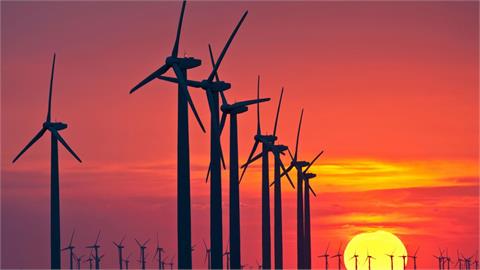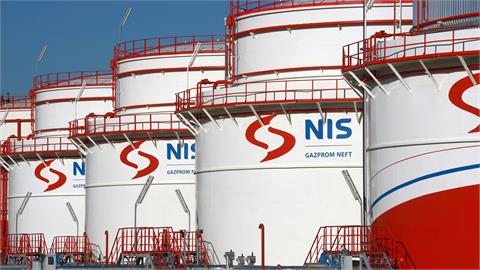Liquefied natural gas (LNG) trade between Turkey and the U.S. could contribute to achieve a trade volume of $100 billion, Defne Sadiklar Arslan, director of U.S.-based think tank Atlantic Council in Turkey told Anadolu Agency on Friday.
The Trump administration is pursuing a policy of increasing U.S. exports, part of which includes LNG that would allow Turkey to avail of price advantages provided, she said. She noted that Turkish and the U.S.' public and private sector stakeholders plan to meet in early 2020 to discuss LNG trade with the target of reaching a $100 billion trade volume. According to Arslan, the meeting could represent the start of this escalation in trade.
She noted that LNG could offer leverage for Turkey’s new gas agreements given that its long-term gas contracts covering a volume of 15 billion cubic meters (bcm) will expire in 2021. Turkey's annual gas consumption amounts to around 50 bcm, 90% of which is met through imports mainly from Russia via pipeline as well as Azerbaijan and Iran.
- Turkey second U.S. LNG importer in Europe and Central Asia
Since the U.S. started exporting domestically produced LNG in February 2016, Turkey has become the second-biggest LNG importer from the U.S. in Europe and Central Asia, after Spain, based on data from the U.S. Department of Energy's LNG Monthly report in August 2019. Turkey also feeds its gas system through LNG imports from Algeria and Qatar.
According to Turkey's Energy Market Regulatory Authority's (EMRA) data, Turkey imported 7.14 bcm in the first half of 2019. The country imported 2.94 bcm of LNG from Algeria and 1.27 bcm from Qatar. Turkey imported 884 million cubic meters (mcm) of LNG from the U.S. over the same period, greatly surpassing that of the previous year of 191 mcm, marking a 363% boost.
Arslan suggested that Turkey could take advantage of competitive pricing by introducing the necessary LNG trade regulations, specifically in allowing Turkish private companies to import U.S. LNG. She acknowledged that Turkey has already made several new investments to increase LNG capacity, gas storage and pipeline projects like the newly completed Trans-Anatolian Natural Gas Pipeline (TANAP) that is set to offer great advantages to Turkey.
Turkish President Recep Tayyip Erdogan and the President of Azerbaijan Ilham Aliyev inaugurated the Europe link of the TANAP on Saturday at a ceremony held in the northwestern Turkish province of Edirne, near the border with Greece. A total of 16 bcm of gas will be delivered through the project out of which TANAP will deliver 6 bcm to Turkey while transferring 10 bcm via the Trans Adriatic Pipeline on the Turkey-Greece border. The delivery capacity of the TANAP is projected to expand to 24-31 bcm over time.
- Turkish and U.S. LNG companies can partner
Matthew Bryza, a former U.S. diplomat, and a senior fellow at the Atlantic Council proposed that Turkish and U.S. LNG producers partner to boost trade. "If a private company in Turkey is able to partner with a U.S. LNG producer for investments inside Turkey, it might make sense for the U.S. party to export LNG to Turkey at a lower price," he said.
Currently, this is not possible, as the Turkish government does not allow such a partnership. However, Bryza suggested that through a bilateral trade pact with the U.S. that would involve the relaxation of restrictions, such gas-to-power investments would be feasible allowing significant increases in U.S. LNG exports to Turkey.
He noted the great deal of LNG activity in both countries, with the Turkish government substantially expanding Turkey's LNG import capacity to cover approximately 25% of demand, while private U.S. companies are significantly increasing their capacity to export LNG. Turkey's current LNG storage capacity is 118 mcm per day.
According to Bryza, U.S. LNG exports to Turkey would generally make commercial sense for Turkey’s domestic consumption but suggested "from a strategic perspective, it might make sense for Ukraine to obtain natural gas via reverse flow in a swap arrangement involving U.S. LNG imported into Turkey."
Bryza broached the subject of reverse flows from Turkey's so-called ‘Western Route’ pipeline, which carries Russian natural gas via Ukraine, Romania, and Bulgaria to Turkey. He said Russia’s Gazprom would stop using this pipeline once the TurkStream pipeline begins operations. He asserted that there is much interest in the possibility of reverse flows from this route although there is strong opposition from Russia against this reverse flow project that is destined to be beset with legal and political hurdles.
(Anadolu Agency)



